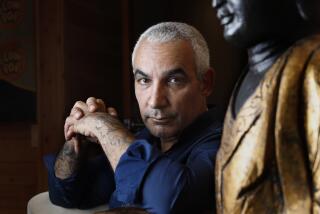Nephew Wins $1.6 Million in Molestation Civil Case
- Share via
LOS ANGELES — A Superior Court jury awarded more than $1.6 million Tuesday to a Fullerton man who said he realized two years ago that his uncle had sexually molested him as a child.
The jury award--which totals $1.65 million with compensatory and punitive damages--stems from a 2-year-old civil lawsuit filed by Chris Tingirides, 32, against his uncle, Andrew Tingirides, 45, of Oakhurst, Calif.
The suit alleged that the older Tingirides forced his nephew to perform oral copulation once in 1966 while the two were at the uncle’s Los Angeles home.
Chris Tingirides, a divorced father, claims in his suit that he repressed his memory of the incident and that it was not until 1990, during psychotherapy, that he realized his uncle sexually molested him.
“I don’t know if I’ll ever recover a penny of the money I was awarded, but it was worth it,” Chris Tingirides said after the jury’s unanimous verdict Tuesday.
Attorney Paul Kossitch, who represented Andrew Tingirides, could not be reached for comment. Andrew Tingirides, who was not in court Tuesday, also could not be reached for comment.
The lawsuit, filed in Los Angeles County Superior Court in Pomona, asked that Chris Tingirides be compensated for “extreme and severe mental anguish and physical pain,” medical expenses and for general damages he suffered after realizing he was molested.
The jury award sends a message to anyone who has been molested by family members, said Newport Beach attorney, Bryan F. Brown, who represented Chris Tingirides.
“This type of case is giving all those people a chance to get help. It gives them a chance to recover money to get some therapy,” he said.
Brown and other attorneys who work on sexual molestation cases said that the Tingirides case is rare because few cases involving alleged molestation within a family are argued in civil court.
“Most family members don’t want this to be broadcast,” said Marri Derby, an attorney in the public defender’s office. “They tend to deal with it in the family.”
More to Read
Sign up for Essential California
The most important California stories and recommendations in your inbox every morning.
You may occasionally receive promotional content from the Los Angeles Times.













